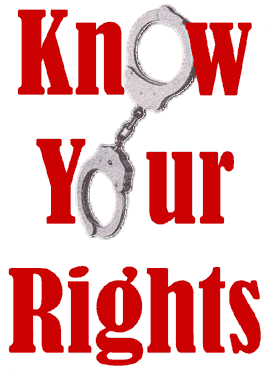This guide covers how to effectively interact with police at a protest. Though this won’t arise at every protest, sometimes police will intervene. It’s important to maintain a non-violent approach and work with the police as much as you can. Typically police are present at rallies simply to watch and make sure that it stays peaceful. The following guide will explore:
Preparation
Basic rights in Canada
What to do if arrested
Tips
Preparation
Before a protest make sure friends and family know where you’re going, so they can contact legal support if they suspect you’ve been arrested. Don’t bring drugs, weapons or personal information (such as address books) with you.
Keep a pen and paper on you to write down the names of anyone who might be arrested. Afterwards you can go to the station and ask what they are charged with. Write down the number for your province’s legal aid, either on a sheet of paper or in marker on your arm.
Know your rights
The Canadian Civil Liberties Association created a simple guide about your rights as a protester in Canada. It covers how to deal with being stopped by police, when you can be searched and much more. OPIRG Carleton also has a great guide.
An Activist’s guide to the law is a general overview of your rights as an activist.
This basic guide to interacting with police can be distributed before a protest. It goes over what to do in common situations where activists encounter police.
The Law Union of Ontario’s post G20 action guide is an essential guide for Canadian activists who have been wronged by police. Though it focuses on Ontario, it is a useful primer for all activists to understand their rights. Included in it are details about what your rights are, how to file a complaint or sue the police and making human rights complaints.
The biggest exception is Quebec, where privacy laws are much stricter and you must get permission before taking a photo of someone on the street.
If arrested
Co-operate as much as possible.
Ask for legal counsel.
Ask to know what you are charged with.
Do not lie. It is your right to not talk to police, but if you lie you could be charged with obstructing justice.
Explain if you require specific accomodations or have a medical condition right away and where others can hear.
Tips
You can walk away from a police officier unless they have detained or arrested you. If you are detained you have a right to know why. If police are questioning you while you are detained you do not have to answer.
Always document any incidents with police. Record the officier’s badge number, name and get contact information from any witnesses. Legal observers can be a big help.



